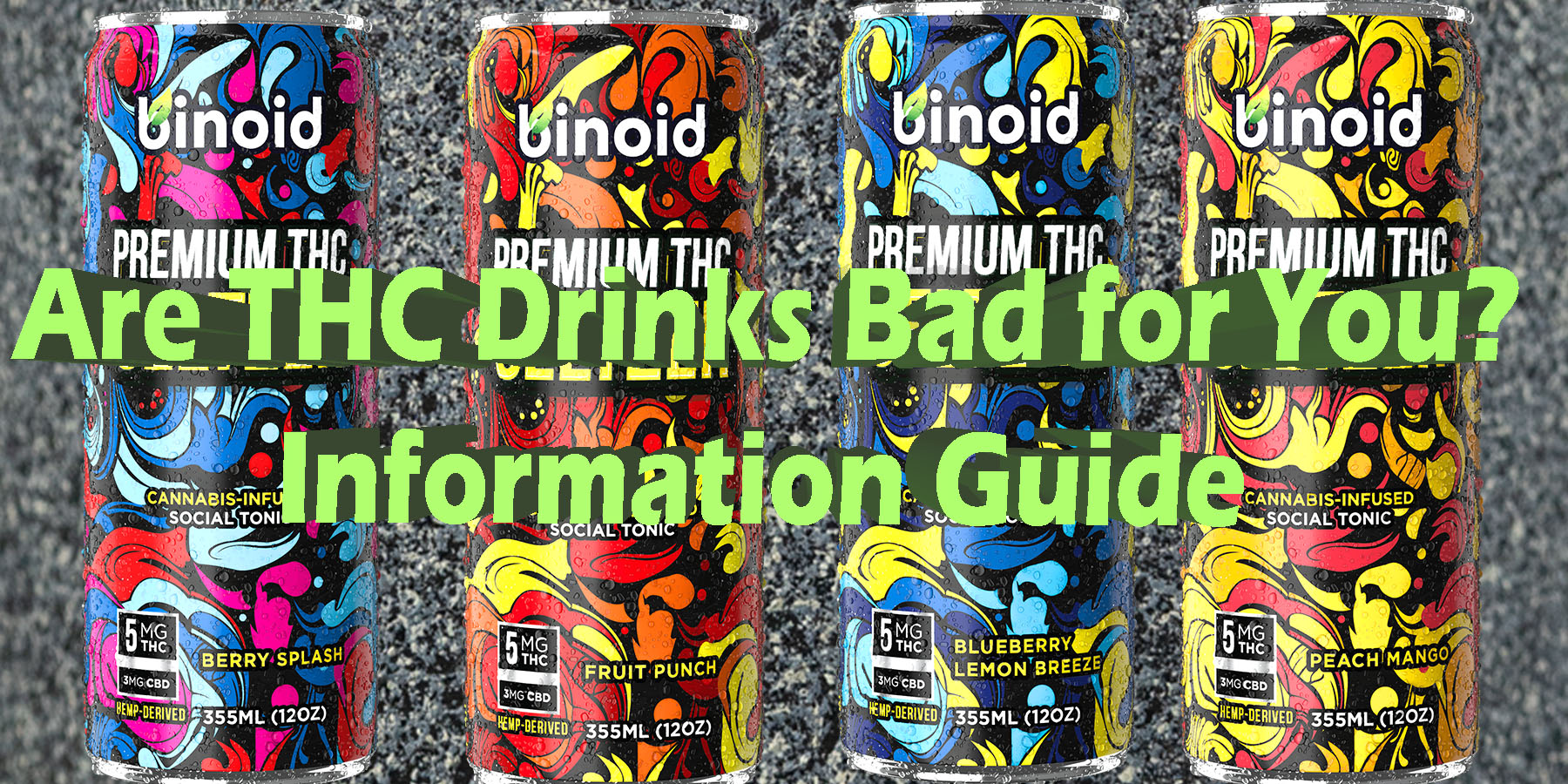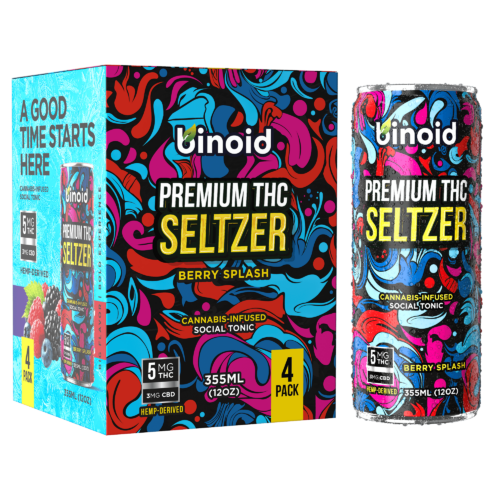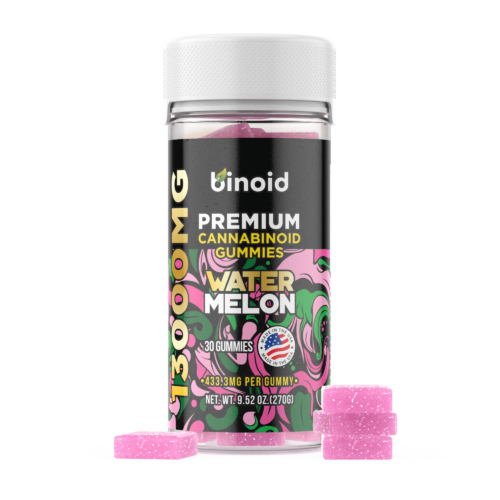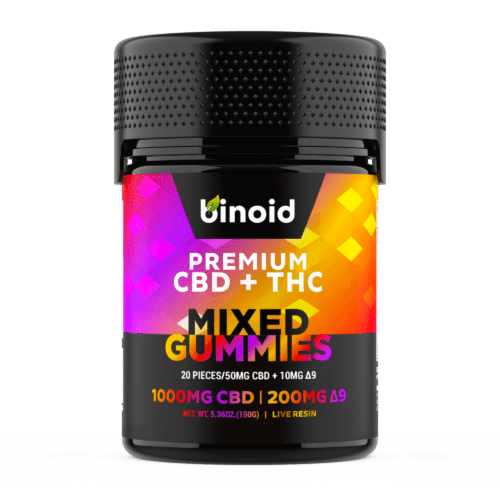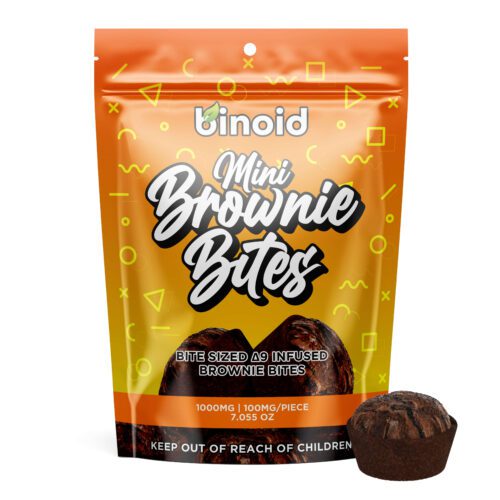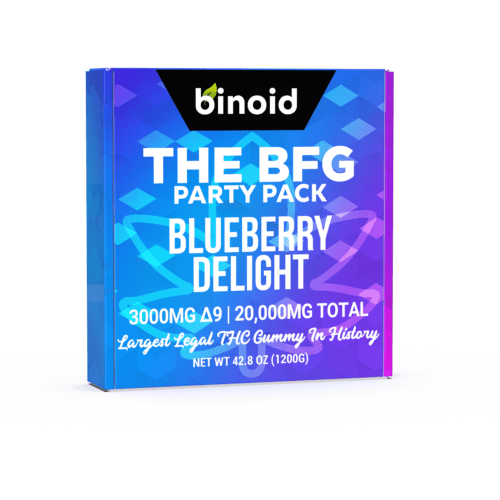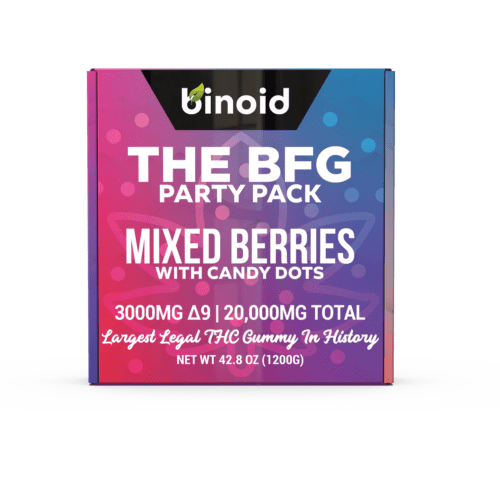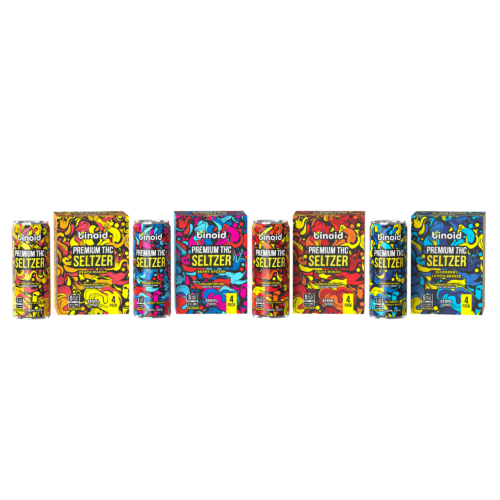In our modern world, we are faced with an endless kaleidoscope of choices, especially when it comes to what we consume. We stand in grocery aisles weighing the benefits of oat milk versus almond milk, we scan café menus debating the merits of a cold brew over a matcha latte, and we peruse cocktail lists searching for the perfect spirit to match our mood. This culture of choice is empowering, but it also brings with it a greater responsibility to be informed.
As THC-infused beverages step boldly into this landscape, they present a new and exciting set of options for relaxation and recreation. Naturally, this new frontier prompts an important and intelligent question from any thoughtful consumer: “Is this choice a good one for me?” The exploration of whether THC drinks are “bad for you” is not about seeking a simple thumbs-up or thumbs-down, but about engaging in a mature, nuanced conversation about wellness, responsibility, and personal alignment.
To Buy THC Drinks Click Here
Recommended products
A Quick Insight into THC
To have a meaningful discussion about THC drinks, we must first start with their core component: Tetrahydrocannabinol (THC). THC is the most famous and abundant cannabinoid found within the cannabis plant, and it serves as the primary engine for the plant’s psychoactive effects. When you hear people talk about the “high” from cannabis, they are referring to the suite of feelings and perceptual shifts orchestrated by THC. Its unique molecular structure allows it to interact with our body’s internal systems in a way that can lead to a wide range of experiences, from blissful euphoria to profound relaxation. Understanding THC is the first step in understanding any product that contains it, as its inherent properties are the foundation upon which every beverage is built and every experience rests.
The spectrum of effects produced by THC originates from its interaction with our body’s endocannabinoid system (ECS). The ECS is a vast and complex network of receptors that acts as a master regulator, helping to maintain internal balance, or homeostasis, across numerous physiological processes. Our bodies create their own natural cannabinoids, called endocannabinoids, that fit perfectly into these receptors to modulate things like mood, sensation, and appetite.
THC’s molecular structure is so remarkably similar to our own endocannabinoids that it can also bind to these receptors, particularly the CB1 receptors that are highly concentrated in the brain and central nervous system. However, THC’s influence is often more powerful and lasts longer than our body’s natural compounds, leading to the noticeable and celebrated shifts in consciousness that define the cannabis experience.
The immense and growing popularity of THC in contemporary culture is a direct reflection of a collective search for new and sophisticated ways to enhance our leisure and well-being. As society evolves, many people are looking beyond traditional recreational choices, seeking experiences that offer a different kind of release, connection, or creative spark. The versatile nature of THC is central to its appeal; it can serve as a catalyst for a vibrant social gathering or as a quiet companion for an evening of introspection.
This widespread interest has fueled a massive surge in product innovation, bringing THC out of the shadows and into the light of modern, mainstream lifestyles. This popularity also brings with it a greater need for consumer education, ensuring that users are well-equipped to engage with this powerful compound in a responsible and beneficial way.
Recommended products
Entering the World of THC Drinks
With a foundational understanding of THC, we can now look at how it is delivered in this exciting and accessible format. A THC drink is, at its core, a commercially produced, ready-to-drink beverage that has been scientifically formulated to contain a precise and clearly labeled dose of THC. These products represent a significant evolution in how cannabis can be consumed, offering a convenient and socially integrated method that appeals to a wide audience.
The true innovation lies in the food science that allows the naturally hydrophobic (oil-based) THC to be perfectly and stably suspended within a water-based liquid. This ensures a consistent product and a manageable experience, which is a critical aspect when considering the factors that make a product a “good” or “bad” choice for an individual.
The modern market for THC drinks is a vibrant and expanding landscape, with each category defined by its core ingredients and production methods. These compositional factors are central to the conversation about whether a drink is “bad for you,” as a beverage’s health profile goes far beyond just its THC content. The creation of these drinks hinges on the science of emulsification, a process that takes a refined cannabis extract and makes it completely dispersible in liquid, allowing for a world of culinary possibilities:
THC Seltzers: This category is often viewed as one of the “cleaner” options. It is defined by a minimalist ingredient list: purified carbonated water, a THC nano-emulsion, and subtle natural fruit essences. The production process is focused on simplicity and clarity. Because they are typically free of sugar, artificial sweeteners, and artificial colors, they appeal to health-conscious consumers. Their “badness” is less about ingredients and more about the responsible use of the THC itself. They are almost universally packaged in aluminum cans, which are highly recyclable and protect the cannabinoids from light degradation.
THC Sodas: These beverages are designed to be an indulgent treat, replicating the sweet, bold flavors of classic soft drinks. Their production involves a syrup base containing a significant amount of a sweetener, which is a key consideration. The “bad for you” conversation here often centers on the high sugar content (often high-fructose corn syrup in lower-quality brands) and the presence of artificial colors and flavors used to achieve the vibrant look and taste. While enjoyable, from a nutritional standpoint, they are a less “healthy” choice than simpler beverages.
THC Waters: Crafted for the purist, THC-infused waters often have the cleanest ingredient panel of all. The production involves simply infusing a tasteless THC isolate or distillate into purified still or sparkling water. They are usually free of any additives, making them a very direct THC delivery system. The main consideration here is not added “bad” ingredients, but the packaging. Many are sold in clear PET plastic bottles, which offer less protection from UV light than cans, potentially affecting the long-term stability and potency of the THC if stored improperly.
THC Lemonade: This classic beverage’s health profile depends heavily on its specific formulation. Production involves a base of lemon juice, water, and, crucially, a sweetener. A high-quality brand might use natural sweeteners like agave or monk fruit, while a lower-quality version could be laden with high-fructose corn syrup and artificial preservatives like sodium benzoate. Therefore, reading the label is essential to determine if a specific THC lemonade aligns with your personal dietary standards. They are packaged in a variety of formats, from cans to larger jugs.
THC Tea: This category can range from very “clean” to quite indulgent. A simple, unsweetened THC-infused green tea that you brew yourself from a bag is a very pure product. However, many ready-to-drink bottled or canned iced teas contain a large amount of sugar or artificial sweeteners to appeal to a mass audience. The production of these involves brewing real tea, but the additives introduced after brewing are what consumers need to scrutinize. The potential “bad” ingredients are almost always the sweeteners and preservatives, not the tea or THC itself.
THC Coffee: The conversation around THC coffee often involves the combination of two psychoactive substances: THC and caffeine. While the ingredients of the coffee itself are usually simple, the interaction between the two can be a consideration for some individuals. For ready-to-drink versions, it is also important to check for added sugars, creamers, and artificial flavorings, which can turn a simple coffee into a high-calorie, high-sugar beverage. The “badness” here can be a matter of both added ingredients and the combined physiological effects.
THC Cocktails: These sophisticated non-alcoholic beverages are defined by their complexity, which can sometimes mean a long and complicated ingredient list. To replicate the taste of traditional spirits, producers may use a combination of natural botanical extracts, real fruit juices, and, in some cases, “natural” or “artificial” flavors. The potential for “bad” ingredients comes from these flavoring systems and added sweeteners. A discerning consumer will look for products that achieve their complex taste using only real, recognizable botanical and fruit ingredients.
THC-infused Wines and Beers: The primary consideration for these non-alcoholic products often revolves around what is added after the dealcoholization process. The base non-alcoholic wine or beer is a relatively straightforward product. However, some brands may add sweeteners or flavor packs to compensate for taste lost during the removal of alcohol. This is where consumers should look closely at the ingredient list for any undesirable additives that are not part of a traditional wine or beer recipe, ensuring the product remains as clean as possible.
THC Drink Mix: This category requires the most scrutiny from a consumer, as the powders and liquid concentrates are highly formulated products. To make THC water-soluble and shelf-stable in a powder form, manufacturers often use carrier agents like maltodextrin, as well as anti-caking agents, artificial sweeteners, artificial colors, and chemical preservatives. While incredibly convenient, these mixes can often contain a long list of the very ingredients that health-conscious consumers try to avoid, making it essential to read the label carefully.
The audience for THC drinks is exceptionally broad and continues to grow as the stigma around cannabis recedes. A primary group of consumers are those who are “canna-curious” but are put off by the idea of smoking or vaping. The familiar and socially acceptable format of a beverage provides a much less intimidating entry point.
Another significant demographic is composed of individuals actively looking to reduce or replace their alcohol consumption. THC drinks offer a way to participate in social rituals and achieve a pleasant buzz without alcohol and its associated next-day consequences. Furthermore, the growing wellness movement has drawn in health-conscious consumers who are attracted to the many low-sugar, low-calorie, and all-natural options that align with a more mindful lifestyle.
Recommended products
The Question at Hand: “Are THC Drinks Bad for You and What Even Defines a “Bad” THC Drink?
The question “Are THC drinks bad for you?” is a profound one precisely because it cannot be answered with a simple yes or no. The term “bad” is not a scientific absolute but a deeply personal and contextual judgment. To have a productive conversation, we must first deconstruct the question itself. A drink could be considered “bad” based on its nutritional profile, filled with excessive sugars and artificial additives that are misaligned with a healthy diet. It could be defined as “bad” based on its formulation, containing irresponsibly high doses of THC or lacking the transparent lab testing needed to ensure its purity.
Or, a drink could be perfectly clean and responsibly dosed yet still be a “bad” choice for a specific individual at a specific time due to their unique physiology, mental state, or life circumstances. From a purely compositional standpoint, what defines a “bad” THC drink is often identical to what defines any “bad” conventional beverage. The primary culprits are typically found on the ingredient list. A beverage laden with high-fructose corn syrup, a highly processed artificial sweetener, is nutritionally inferior to one sweetened with natural stevia or real fruit juice.
Similarly, a drink that achieves its vibrant hue from synthetic petroleum-based dyes like Red 40 or Yellow 5 is a less desirable choice than one colored with beet or carrot extract. The inclusion of chemical preservatives like sodium benzoate or artificial flavors derived from a proprietary blend of chemicals can also be a red flag for discerning consumers. These ingredients don’t make the THC itself “bad”. but they certainly detract from the overall quality and wellness profile of the product.
Beyond the ingredient list, a “bad” THC drink can also be defined by a brand’s lack of responsibility and transparency. In the rapidly expanding and sometimes under-regulated market, some products may be formulated with excessively high doses of THC in a single, small serving, which can be dangerous for inexperienced users. A brand that does not make its third-party lab reports, or Certificates of Analysis (COAs), readily available to consumers should be viewed with suspicion.
These reports are the only way to verify that the product contains the amount of THC advertised and is free from harmful contaminants like pesticides, heavy metals, or residual solvents. Therefore, a “bad” drink can be one that is deceptively potent or one that simply fails to provide the proof of its own purity and safety.
Can THC Drinks Be Bad for You Physically?
While a responsibly dosed, cleanly formulated THC drink is generally well-tolerated, it’s important to acknowledge that the THC itself can produce physical effects that some may find unpleasant or “bad” depending on the situation. These are not signs of an unhealthy product, but rather the known physiological responses to the cannabinoid itself, such as:
Impaired Coordination and Motor Skills: THC directly interacts with the cerebellum and basal ganglia, parts of the brain that are crucial for balance, coordination, posture, and reaction time. This can result in a temporary feeling of clumsiness, being unsteady on your feet, or having noticeably slower reflexes. While this might be a harmless and even amusing sensation when relaxing safely on a couch, it becomes definitively “bad” and dangerous if you are in a situation that requires physical acuity. This impairment is why driving or operating any machinery after consumption is strictly prohibited and incredibly unsafe.
Increased Heart Rate (Tachycardia): Shortly after consuming THC, it is very common to experience a temporary and noticeable increase in heart rate. THC is a vasodilator, meaning it causes blood vessels to widen, which in turn causes a temporary drop in blood pressure. To compensate and maintain proper circulation, the heart has to beat faster. For most healthy individuals, this effect is benign and subsides on its own. However, for an individual who is not expecting it or who has a pre-existing sensitivity, the physical sensation of a racing heart can be unsettling and contribute to feelings of unease.
Dry Mouth and Eyes: One of the most common and unavoidable side effects of THC is a distinct feeling of dryness in the mouth (cottonmouth) and eyes. This is a direct physiological response. THC binds to cannabinoid receptors found in our salivary glands and lacrimal glands (which produce tears), temporarily inhibiting their secretions. While this is a harmless effect, the physical discomfort can be significant and annoying, detracting from an otherwise pleasant experience. It’s a “bad” feeling in the sense that it is purely a nuisance that requires management with hydration.
Dizziness and Lightheadedness: Especially for new users or when a higher dose is consumed, feelings of dizziness or lightheadedness can occur. This is often linked to the same vasodilating effect that increases heart rate; the temporary drop in blood pressure can make you feel faint, particularly when standing up too quickly (a phenomenon known as orthostatic hypotension). In a situation where you need to be sharp and on your feet, this physical side effect would certainly be considered “bad,” as it can be disorienting and may require you to sit or lie down until it passes.
Lethargy and Physical Sluggishness: While deep relaxation can be a desired benefit, it can cross the line into a “bad” side effect when it turns into profound lethargy. Often associated with Indica-leaning products or the “comedown” phase of the experience, this “couch-lock” effect can feel like a heavy, immovable weight on the body. If your intention was to be active, social, or creative, this overpowering physical sluggishness can feel like a negative outcome, completely derailing your plans and leaving you feeling unproductive and foggy.
Recommended products
Can THC Drinks Be Bad for You Mentally?
The mind is where THC produces its most sought-after effects, but it is also where the most challenging experiences can occur. The line between a blissful journey and a “bad trip” is often determined by dosage, mindset, and environment. Specifically, it would be this:
Feelings of Unease or Paranoia: This is the most well-known and feared negative mental side effect. While low doses often produce euphoria, higher doses can sometimes have the opposite effect, leading to a cycle of worried, irrational, or paranoid thoughts. A person might become overly self-conscious in a social setting or feel an unfounded sense of dread. This experience is highly subjective and can be triggered or worsened by being in an uncomfortable or overstimulating environment, making it one of the primary “bad” mental outcomes that responsible use aims to avoid.
Short-Term Memory Impairment: THC is known to temporarily disrupt the function of the hippocampus, the region of the brain responsible for forming new memories. This can lead to frustrating and disorienting lapses in short-term memory. You might find yourself forgetting the topic of a conversation mid-sentence or being unable to recall what you were looking for when you walked into a room. While temporary, this cognitive impairment can be a significant downside, especially if you are trying to learn something new, have a meaningful conversation, or simply feel mentally sharp.
Altered and Disorienting Perception of Time: A common mental effect of THC is the distortion of time perception, where minutes can feel like they are stretching into hours, or time can seem to jump forward unexpectedly. While some find this fascinating, for many, it can be a “bad” or unsettling experience. Losing a stable grasp on the passage of time can be disorienting and can contribute to feelings of unease, especially if you have a schedule to keep or are in a situation where you feel a loss of control.
Sensory Overload: THC enhances sensory perception, which can make music sound richer and food taste more delicious. However, this same effect can become “bad” in the wrong environment. In a loud, crowded, or visually chaotic setting—like a busy public place or a high-intensity concert—the enhanced sensory input can become overwhelming. The mind may struggle to process all the stimuli at once, leading to a feeling of being frazzled, agitated, and wanting to retreat to a quiet space.
Emotional Hypersensitivity: Sometimes, THC can lower emotional barriers, which can be a good thing for fostering connection. However, it can also lead to a state of emotional hypersensitivity that can be considered “bad.” In this state, a person might become overly sensitive to the perceived moods of others, misinterpret neutral comments as negative, or feel their own emotions with an uncomfortable and unmanageable intensity. This can make social interactions feel difficult and emotionally exhausting rather than fun and carefree.
Recommended products
So, Who Should and Shouldn’t Have THC Drinks Then?
Entering the realm of THC-infused beverages is not a one-size-fits-all experience. The question of who these drinks are for, and who should perhaps abstain, is a crucial one that centers on responsibility, life circumstances, and individual health. Making an informed decision requires an honest assessment of one’s own situation. The goal is to align the consumption of these products with a lifestyle that is healthy, safe, and free from negative consequences, ensuring that it remains a positive addition to one’s recreational or wellness toolkit.
Those Who Should Have THC Drinks
The ideal candidate for enjoying THC drinks is an individual who approaches consumption with mindfulness, maturity, and a clear understanding of their own goals. These products are well-suited for a variety of responsible adults, including:
The Responsible Adult Seeking an Alcohol Alternative: Individuals who are looking to reduce their alcohol intake for health or personal reasons are prime candidates. THC drinks offer a sophisticated and satisfying way to participate in social rituals, unwind after work, or celebrate an occasion with a pleasant buzz but without the calories, sugar, and potential next-day hangover associated with alcoholic beverages. They provide a similar function but with a different, often cleaner-feeling, set of effects.
The “Sober Curious” and Wellness-Minded Consumer: This group is actively exploring a more mindful and health-conscious lifestyle. They are drawn to THC drinks, particularly low-sugar seltzers and waters, as a wellness tool rather than just a recreational substance. For them, a THC drink is a deliberate choice that aligns with their values of clean living, emotional well-being, and avoiding the negative impacts of alcohol, making it a perfect fit for their modern, holistic approach to health.
The Experienced Cannabis User Seeking a New Format: Individuals who are already familiar with the effects of cannabis from other methods like smoking or edibles may find THC drinks to be a welcome new addition. They offer a convenient, discreet, and smoke-free way to enjoy a familiar feeling. The fast-acting nature of many drinks can also provide a more controlled and manageable high compared to the slow and often unpredictable onset of traditional edibles, appealing to experienced users who value precision.
The Creative Individual Seeking Inspiration: For artists, writers, musicians, and other creative professionals, a THC drinks can be a valuable tool for breaking through mental blocks and fostering new perspectives. A low-dose, Sativa-leaning beverage can help quiet the inner critic and encourage a state of “flow,” where ideas connect more freely. When used intentionally and in a dedicated creative space, these drinks can be a powerful catalyst for inspiration and innovation.
The High-Stress Professional or Parent: For those navigating demanding careers or the beautiful chaos of parenthood, creating a clear boundary between “on-duty” and “off-duty” time is essential for preventing burnout. A THC drink can serve as a powerful ritualistic tool to facilitate this transition. The simple act of opening and sipping a low-dose THC beverage at the end of the day can act as a “circuit breaker,” helping to release the mental load of responsibilities and ease into a state of personal relaxation and presence. It offers a way to decompress and reclaim evening hours for oneself without resorting to alcohol.
The Connoisseur of Sensory Experiences: This individual is not just seeking to unwind, but to actively enhance a specific sensory activity. THC is well-known for its ability to make music sound more layered, food taste more complex, and films feel more immersive. For this person, a THC drink is a pairing, much like a fine wine with a specific cheese. They might choose a THC lemonade to complement a spicy meal, or a THC cocktail to sip while listening to a favorite album on vinyl, using the beverage to unlock a richer, more vivid, and more deeply appreciated sensory experience.
The Person Seeking Authentic, Low-Key Socializing: Not all social butterflies enjoy the loud, high-energy environment often fueled by alcohol. Some individuals are looking for a way to connect with friends in a more relaxed, genuine, and intimate setting. A low-dose THC seltzer can be perfect for this, as it tends to foster a different kind of social energy—one characterized by shared amusement, easy laughter, empathy, and more meaningful conversation. It can help lower social inhibitions just enough to promote authentic connection without leading to the boisterousness or superficiality that can sometimes accompany other substances.
Recommended products
Those Who Shouldn’t Have THC Drinks
Just as there are people for whom THC drinks are well-suited, there are also specific groups who should abstain from consumption for clear safety and health reasons. These are not matters of preference but are based on widely accepted public health guidelines and an understanding of potential risks.
Individuals Under the Legal Age: The most important and non-negotiable guideline is adherence to the legal age of consumption. For marijuana-derived products sold in licensed dispensaries, the legal age is strictly 21 years or older nationwide. For federally legal (2018 Farm Bill-compliant) hemp-derived products, the legal age can vary by state, with some allowing sales at 18+ while many others have also adopted the 21+ standard. Regardless of the complex legal landscape, the universal recommendation from public health organizations is centered on brain development. The scientific consensus indicates that the brain continues to undergo critical maturation well into a person’s mid-20s. Therefore, the most responsible guidance is that these products should not be consumed by adolescents or young adults.
Pregnant or Breastfeeding Individuals: Virtually all medical and public health organizations, including the CDC and the American College of Obstetricians and Gynecologists, strongly advise against cannabis use during pregnancy and breastfeeding. THC can cross the placental barrier and is present in breast milk, and it has been linked to potential developmental issues, including lower birth weight and challenges with neurological development in children. For the health of the baby, abstinence is the only recommended course of action.
Individuals with Certain Pre-Existing Health Conditions: Those with a history of serious cardiovascular conditions should exercise extreme caution. Because THC can cause a temporary increase in heart rate and affect blood pressure, it could potentially put stress on a compromised cardiovascular system. Similarly, individuals with a personal or family history of psychosis or certain serious mental health conditions should avoid THC, as it can potentially trigger or exacerbate these issues. In all such cases, a frank discussion with a trusted healthcare professional is essential before even considering consumption.
Individuals Taking Certain Prescription Medications: THC is metabolized by the liver, and it can interact with the same enzymes that process many common prescription medications. This can potentially alter the effectiveness of those medications, either by making them too strong or not strong enough, which can be dangerous. Anyone taking prescription drugs, particularly blood thinners, sedatives, or medications for blood pressure or mental health, should consult with their doctor or pharmacist about potential interactions before consuming THC products.
Anyone Who is Unprepared or in a Poor “Set and Setting”: Even for a person who fits all the right criteria, if the moment isn’t right, it is best to abstain. If you are feeling emotionally distraught, highly agitated, or are in an unsafe or stressful environment, you are setting yourself up for a negative experience. Responsible consumption includes having the self-awareness to know when not to partake, saving the experience for a time when your mind and your surroundings are conducive to a positive journey.
The Choice to Have a THC Drink (Legally) is Still Totally Up to You!
In the final analysis, the question of whether a THC drink is a “good” or “bad” choice cannot be answered by a simple verdict on the beverage itself, but only by the individual holding the can. The dialogue surrounding these products is maturing beyond simple binaries and into a more sophisticated understanding of personal responsibility and informed choice.
The goal of this exploration is not to provide a definitive judgment, but to equip you with a comprehensive framework for your own decision-making. True wellness and enjoyment are found at the intersection of a quality product and a conscious user—one who understands the ingredients, respects the effects, and knows their own mind and body. The power, ultimately, is entirely in your hands.

